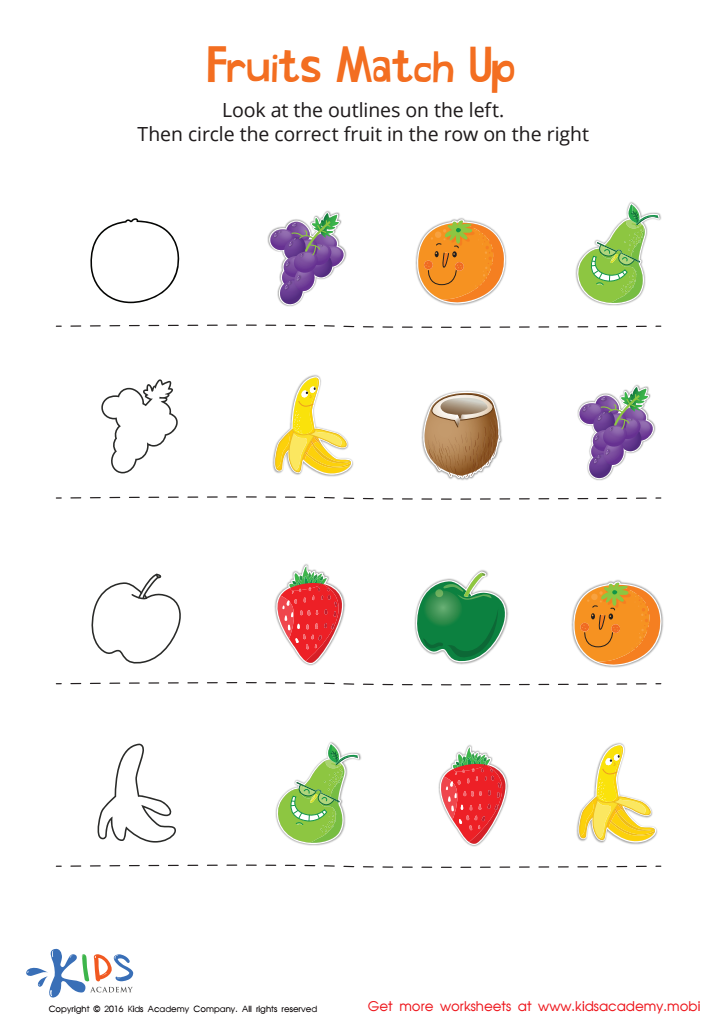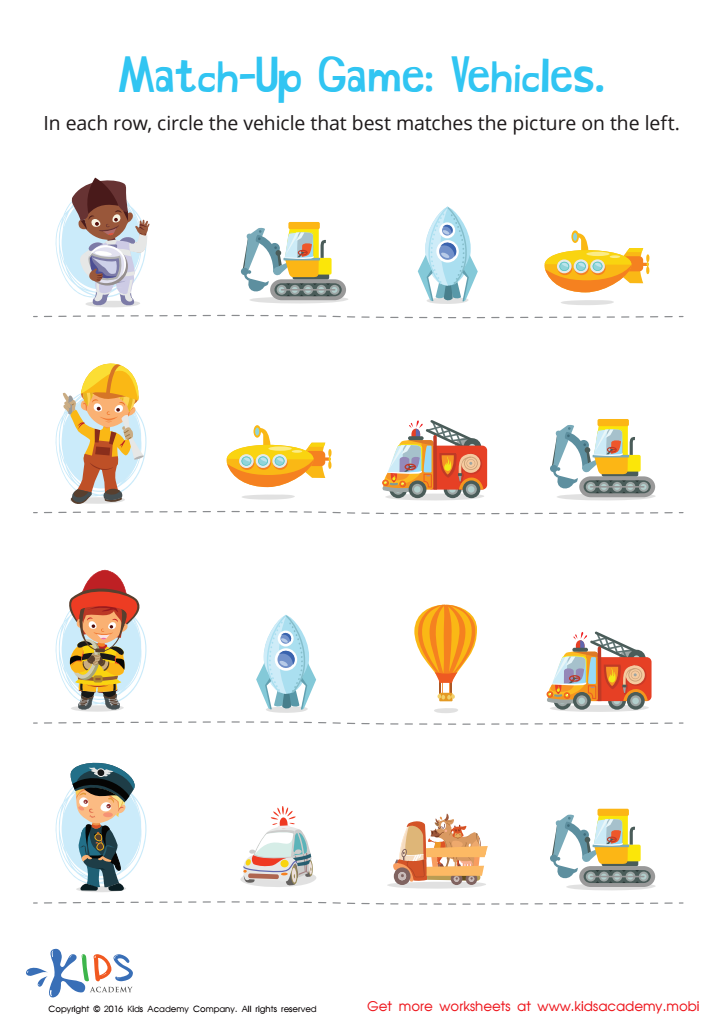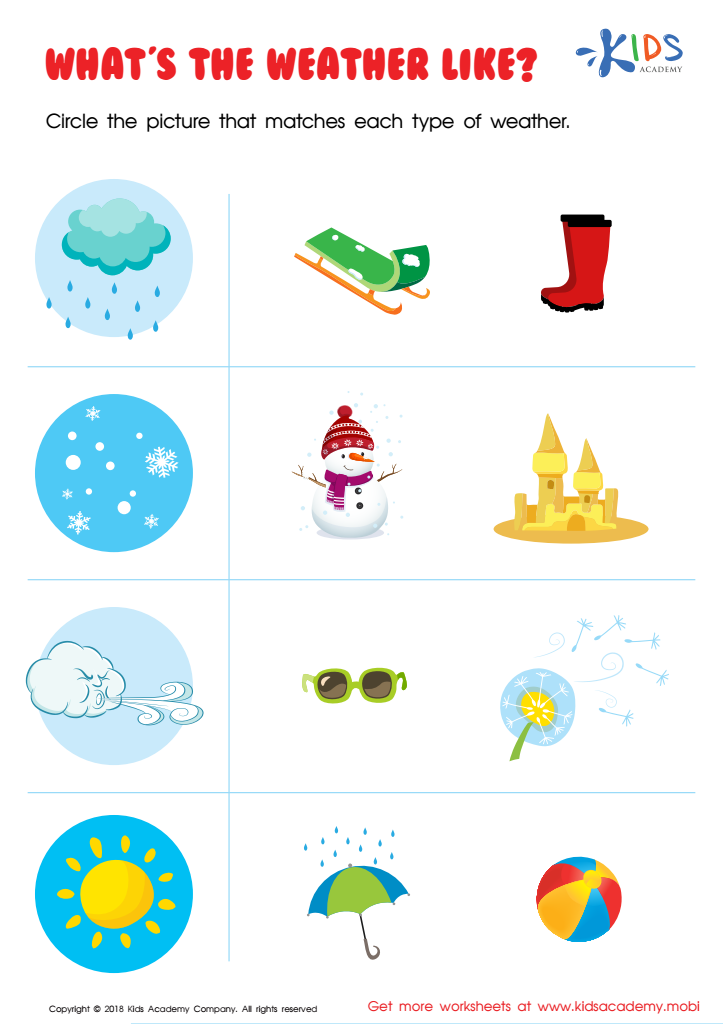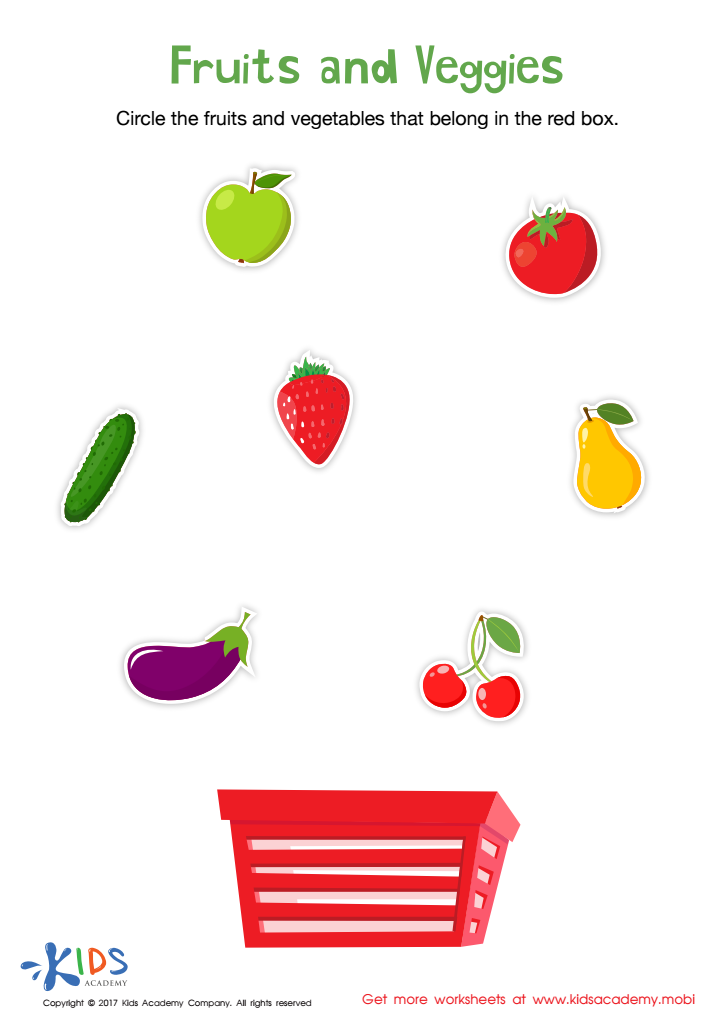Vocabulary Building Normal Matching Worksheets for Ages 4-5
5 filtered results
-
From - To
Enhance your child's vocabulary skills with our engaging Vocabulary Building Matching Worksheets for ages 4-5. Perfectly designed for preschool and kindergarten children, these printable worksheets make learning fun and effective. Each activity helps young learners recognize and match words with corresponding images, fostering literacy and cognitive development. By practicing with our expertly crafted resources, kids will strengthen their word recognition, comprehension, and critical thinking. Explore our extensive collection of worksheets today and give your child the educational tools they need to succeed. Empower your early learner's vocabulary journey with Kids Academy!


Fruits Match Up Worksheet


Matching: Classifying Toys by Size Worksheet


Vehicles Worksheet


What's the Weather Like? Worksheet
Vocabulary Building is crucial for children aged 4-5 as it lays the foundation for their future language and cognitive development. Parents and teachers should prioritize this during these early years as it strongly influences a child's ability to understand and develop reading skills, which are vital for academic success. When children engage in Vocabulary Building activities, they not only learn new words but also begin to understand how these words fit into larger linguistic contexts, enhancing both their expressive and receptive language skills.
More importantly, vocabulary knowledge at this stage is strongly correlated with overall intelligence and school performance. Children with a richer vocabulary can better follow instructions, express their thoughts and feelings, and resolve problems more effectively. Through activities like Normal Matching, where children match words to pictures or other words, they develop their memory, attention to detail, and categorization skills. These foundational skills are what scaffold children’s ability to make sense of more complex tasks and ideas in the future.
Furthermore, engaging in Vocabulary Building fosters a love for learning and curiosity. As children encounter new words and their uses, they become more eager to read, ask questions, and engage in conversations. Therefore, both parents and teachers play a crucial role in enriching a child’s early language experience, ultimately setting them up for lifelong learning success.
 Assign to My Students
Assign to My Students
















